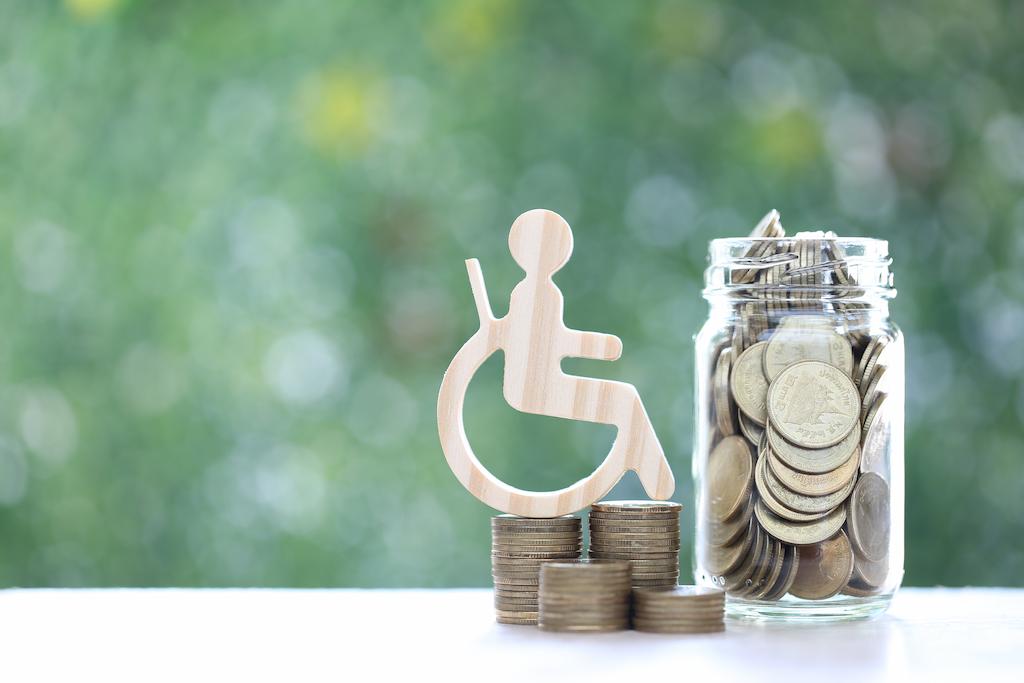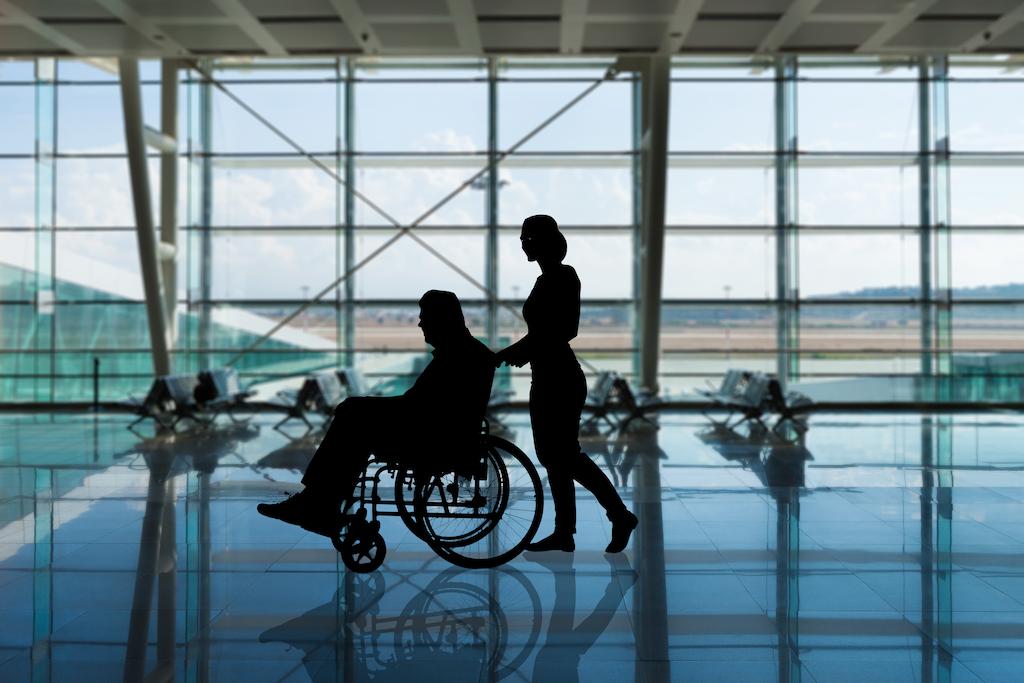14 Reasons Why Social Security Disability Benefits Would Be Suspended
By Kenton Koszdin Law Office on April 23, 2022 | In Blogs
If you’ve received communication from the Social Security Administration (SSA) about benefits cessation, your first thought is likely, “Why would Social Security disability benefits be suspended?”
Many California residents depend on their SSDI or SSI benefits to supplement other types of disability income, so when something happens, it can put your family finances in a serious pinch.
If you’re wondering, “How come Social Security stopped my benefits?” a Social Security disability lawyer in Los Angeles can help explain and prepare an appeal on your behalf.* In the meantime, learn about the most common reasons your SSDI cash benefits end.
Who Decides My Social Security Disability Case?
After you file your SSDI claim, it’s reviewed by a California state disability claims examiner. They review your medical records and determine whether your condition qualifies for disability benefits.
The examiner works for the California Disability Determination Services (DDS) agency, which evaluates all SSDI claims in the state. Although the DDS and your claims examiner can recommend to the SSA to approve or deny your benefits claim, it’s ultimately up to the SSA to make the final determination in your case.
How Often Does SSI Review Your Case?
Your SSDI benefits could continue as long as you cannot earn a living through work, so if your Social Security payments stopped, it could be due to a change in your work abilities.
However, your case is subject to review by the California DDS and the SSA, including your treating physician’s determination of your recovery or your maximum medical improvement in your condition (the point at which no further recovery could be expected).
Your doctor will list the expected improvement of your medical condition in one of several ways, which determine when your benefits will be reviewed:
- Is Expected: Reviewed in 6-18 months.
- Possible: Reviewed in three years.
- Not Expected: Won’t be reviewed for at least seven years.
As long as a doctor determines your disability prohibits you from working, you should continue to receive supplemental security income.
The SSA refers to your qualifying medical condition review as a Continuing Disability Review (CDR). Adults and children (recipients under 18) have different review standards for a CDR.
Under the adult CDR standards, the SSA may take benefits away if:
- You demonstrate medical improvement per your doctor, which shows you can work.
- You are able to engage in a substantial gainful activity (earning more than $1,740/ month working).
Under child CDR standards, the SSA may remove benefits if:
- The doctor notes medical improvement, and
- The condition no longer produces severe or marked functional limitations
A child’s SSDI benefits can end if the child fails to follow the treating physician’s prescribed course of treatment or in cases of failure to cooperate or fraud.
What Can Cause Benefits to Stop?
The most common answer to your question, “Why did Social Security suspend my benefits?” is that you returned to work and, therefore, can earn income without receiving benefits. However, you may be able to work and still receive disability payments if you meet certain qualifications.
1. Returning to Work While on SSDI
Although returning to work often means the SSDI recipient can engage in a substantial gainful activity (SGA), you could see your SSI stopped without notice if you start volunteering more than a certain number of hours per week.
In 2023, the SSA set the income limit for SGA as:
- Over $1,470 per month for non-blind recipients
- $2,460 per month for people who are blind
If you’re working a lot of hours each week, including volunteer work, the SSA may determine that you can engage in adequate SGA to earn a living without disability payments, so that could be your answer to “Why did Social Security suspend my benefits?”.
The Social Security Administration provides recipients an option for a trial work period without jeopardizing their benefits. Under a specific trial work period, an SSDI recipient can return to work for up to nine months without their benefits ending, no matter how much money they earn in that time.
If you can still work at the end of the trial work period and you’re making more than the SGA limit for your status, the SSA will determine that you are no longer disabled and end your benefits. But they may not end right away if you qualify for an extended period of eligibility.
2. Medical Improvement
Another answer to “Why was my SSI suspended?” is an improvement in your medical condition. Even if you aren’t back at work, if your treating physician lists your condition as “possible” to improve, you could see your Social Security benefits suspended. Benefits are only provided as long as you are considered disabled by the SSA.
Your scheduled CDR with a claims examiner will determine whether your medical condition has improved to the point that you’re no longer disabled. Certain circumstances may trigger an earlier benefits review, including:
- You’ve returned to work
- Your records or other evidence suggests medical improvement
- A new treatment for your condition is possible
Even if Social Security stopped your benefits based on medical improvement, you could still file an appeal with the help of a Social Security disability benefits attorney.
3. Reaching Retirement Age
A third reason you may have Social Security disability benefits suspended is that you’ve reached full retirement age, considered 66-67 years old per the SSA.
You cannot receive Social Security retirement and SSDI benefits simultaneously, but if you reach the full retirement age and are still on SSDI benefits, the SSA will automatically switch your monthly installments from SSDI to retirement. You’ll also receive the same amount for retirement as you do for SSDI.
4. Disabled Child Turning 18
Children who are disability beneficiaries due to a qualifying medical disability must undergo a redetermination of eligibility when they turn 18.
The case is reviewed using adult disability standards, and if the child continues to meet SSDI eligibility benefits, they will continue after the child turns 18. The child will still receive benefits during the redetermination period.
However, if a child receives Social Security benefits because a parent is eligible, the benefits may stop at age 18 or 19 if the child is a full-time student. However, if the child receives benefits because of a parent’s eligibility and has a qualifying disability themselves, they may be able to continue receiving benefits.
5. Being Incarcerated or Institutionalized While on SSDI
Going to jail or prison means an SSI suspension of benefits for the duration of the incarceration period or permanently. When Social Security stops your benefits depends on which kind you receive — SSI or SSDI.
If you receive SSI benefits, your benefits stop after one full month in jail, but you can restart SSI benefits upon your release if they were suspended for less than a year.
If you receive other Social Security benefits, they will be suspended if you are convicted of a crime. You can restart these benefits after your release.
However, a conviction of certain crimes will exclude you from benefits. These include:
- Treason
- Terrorism
- Violating parole
- Fleeing a felony
To restart your SSA benefits, you must provide proof of your release and may also have to prove you still qualify for the type of benefits you’re requesting.
6. Committing Fraud
Any kind of fraudulent claim is grounds for immediate suspension of SSI and SSDI benefits. The SSA considers the following as fraud:
- Providing false information about your identity (using an SSN that’s not yours)
- Misrepresenting facts or giving false statements about your case
- False reporting of income
- Failing to disclose that you are self-employed
- Failure to report anything that could affect your benefits
These may not be the only type of fraudulent actions that would cause Social Security to stop your benefits, just some of the most common ones.
7. Changes in Assets
Any changes in your assets or financial resources can result in a reduction or cessation of your Social Security disability benefits or your supplemental security income. The type of benefits you receive could determine whether certain income or asset changes affect your benefits.
The SSA limits both personal and family assets and income and also considers financial help you get from other people or sources other than work.
If you start receiving income, whether earned at work or from other sources like alimony or other unearned income, the SSA will adjust your supplemental security income.
However, even if your income exceeds the SSI threshold of $914 each month or you acquire more than $2,000 in assets, like a second car, you could still maintain eligibility because the SSA doesn’t treat all income the same way.
The Social Security Administration asset limits for individuals are as follows:
- Personal income (wages and unearned income like alimony): $914
Assets: Less than $2,000 in assets (things of value like investments, excluding a primary residence and one car)
Family income includes people living in the household, like a spouse or parents. A portion of a parent’s income is considered when calculating disability benefits for a child. Married recipients may have part of their spouse’s income factored into their eligibility for benefits.
If you receive free shelter or food, the SSA considers these to be a form of “in-kind income.” One example of this would be an older parent who lives with an adult child in the child’s home.
If the adult child pays the senior’s living expenses, like rent or mortgage, food, utilities, and other expenses, this could be counted as in-kind income for the senior, and their supplemental security income or disability benefits would be one-third less than they are eligible for.
8. Changes in Living Situation
Your living arrangement can also cause Social Security to stop your benefits eligibility. If you enter a group living situation like a nursing home, assisted living, or halfway house, your eligibility will be affected.
Or if you move in with friends or family who pay for part or all of your living expenses, including rent or mortgage, your benefits will be reduced. Finally, your SSI benefits stop if you leave the country for more than 30 consecutive days.
9. Failure to Respond
Failure to respond to a communication from your local Social Security office, including requests for information or your continuing disability review, could jeopardize your benefits. The SSA will contact you for copies of your income, medical records, or other documents; they may stop paying benefits if they cannot get ahold of you.
If your Social Security checks are returned to the SSA by the USPS, your benefits could end. SSI benefits may be reinstated if you can provide the SSA with proof of your new address.
Failure to comply with information requests or respond for more than 12 consecutive months may result in termination of Social Security disability insurance.
10. Disability and Death
The SSA stops benefit payments when the beneficiary passes away. Surviving spouses may apply for widow(er) SSI benefits or surviving family members may be eligible for survivor benefits. Survivor SSDI benefit payments may be available to:
- Spouse
- Children
- Dependent parents
Check with your local Social Security office to see if you qualify for survivorship benefits.
11. Moved Without Notifying the SSA
Keeping your address current is crucial to maintaining SSI benefits. If you’re wondering, “Why did my Social Security benefits stop?” it could be because you moved and failed to notify the SSA. If you change your address, make sure to notify your local Social Security office.
If you move to a different state, the SSA could suspend your payments because you moved to a state administering federal SSI payments along with its own supplemental benefits. SSI is a federal program, so you’re eligible in any state, but your payments could be suspended until you register with your new state.
12. Defaulted on Student Loan Payments
The federal government could garnish your SSI or SSDI benefits if you have delinquent federally-backed student loans. Your benefits won’t stop — being behind on student loans doesn’t disqualify you — but you could see a reduction of up to 15% of your monthly benefits.
If you’re over age 50 and are diagnosed with a disability that is unlikely to improve, you may qualify to fully discharge outstanding federal student loans.
13. Owe the IRS Back Taxes
The IRS can garnish your Social Security check if you owe back taxes, up to 15% of the amount you receive each month. Before your checks are garnished, the IRS will send mailed notices to you and may be willing to work with you to arrange a payment plan in lieu of garnishing your checks.
Some people may qualify for a reduced payment or “offer in kind” plan, while others may be able to place their account into “currently not collectible” status. A lawyer experienced in these matters may be able to help you negotiate a workable repayment plan.
14. Unpaid Child Support
The last answer to “Why would my Social Security benefits be suspended?” could be that you owe child support. Parents who are behind on child support could have their benefits checks garnished to repay any overdue or missed payments.
If you are having trouble making child support payments, consult with a family law attorney for your options.
When Will the Social Security Administration Stop Dependents’ Benefits?
If you receive dependent benefits because you qualify through another person’s earnings records, you could see your benefits reduced or stopped if you have certain life changes, including:
- You turn 18 or 19 if you’re a full-time high school student
- You get married (depending on the circumstances)
- You change your living arrangements and are no longer living with the SSI recipient
These changes only apply if you receive benefits based on someone else’s earnings history, like your parents’. If you collect SSDI benefits based on your own qualifying disability, getting married won’t affect those benefits.
What Should I Do If My SSI Case Is Under Review?
Social Security litigation and appeals can be complex and difficult for people to navigate on their own. If you’re considering filing or appealing an SSDI claim or benefits decision, a skilled disability lawyer can help.
Contact the Kenton Koszdin Law Office to speak with one of our experienced Los Angeles disability attorneys about your case and legal options. We are here to protect the rights of people with disabilities and ensure you get the benefits you’re entitled to.
*Please note: We are dedicated to assisting our former clients with their cessation needs.






